TubeOhm releases 106-Emulation: a Juno 106 model and editor
1980’s Roland synths are all the rage in hardware at the moment. The new System-8, Boutique and the Behringer DeepMind 12 are both having a go at recapturing the appeal of these classic bits of hardware. Meanwhile TubeOhm sneak out the 106-Emulation – a software emulation of the Roland Juno 106 with extras.
106-Emulation
The Juno 106 was a 6 voice analogue polysynth with one DCO per voice. It’s celebrated low-pass filter was capable of self-oscillating and the included chorus helped produce it’s trademark lushness. The 106-Emulation claims to have nailed the emulation down to the last detail. But what’s interesting here is that 106-Emulation can act as an editor for the original hardware. You can program sounds in software and then MIDI SYSEX dump it into a real Juno 106. I imagine that’s a little niche considering how many working 106’s are out in the wild, but it’s a brilliant feature for a software emulation.
Extensions
TubeOhm are not content to stop there. They have expanded the feature set of the Juno 106 with a switchable extensions panel. You get an additional VCA, OSC sync, Delay, Arpeggiator, Voice doubler and LFO. However, if you just want the original Juno 106 sound then all you have to do is turn off the extensions.
106-Emulation is available now for Windows for €44.95 as a VST plug-in. The only small niggle is that the plug-in is 32bit so you may need a bit-bridge if you are running a 64 bit DAW. Although most DAWs can cope with that.
The looks are bang on – what do you think about the sound? Let us know in the comments.
You are currently viewing a placeholder content from SoundCloud. To access the actual content, click the button below. Please note that doing so will share data with third-party providers.
Download the demo from the TubeOhm website.
2 responses to “TubeOhm releases 106-Emulation: a Juno 106 model and editor”

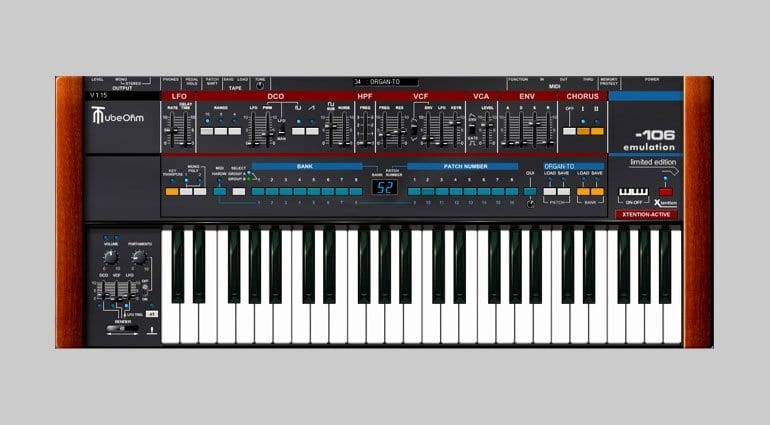
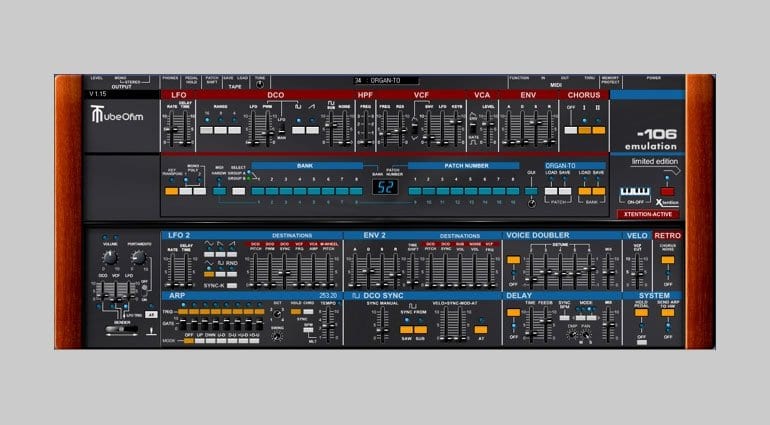


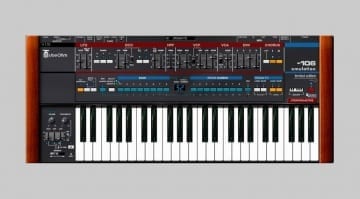

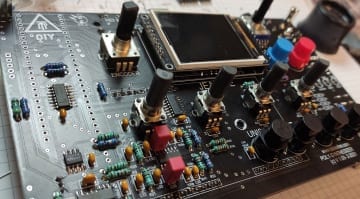

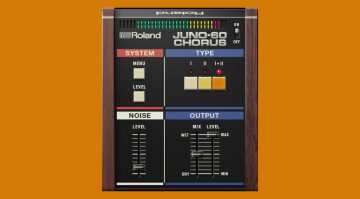
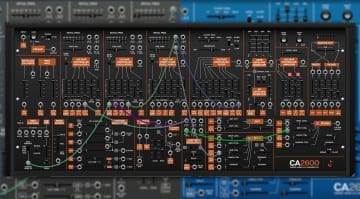
Close-ish
^its, twice (at least)